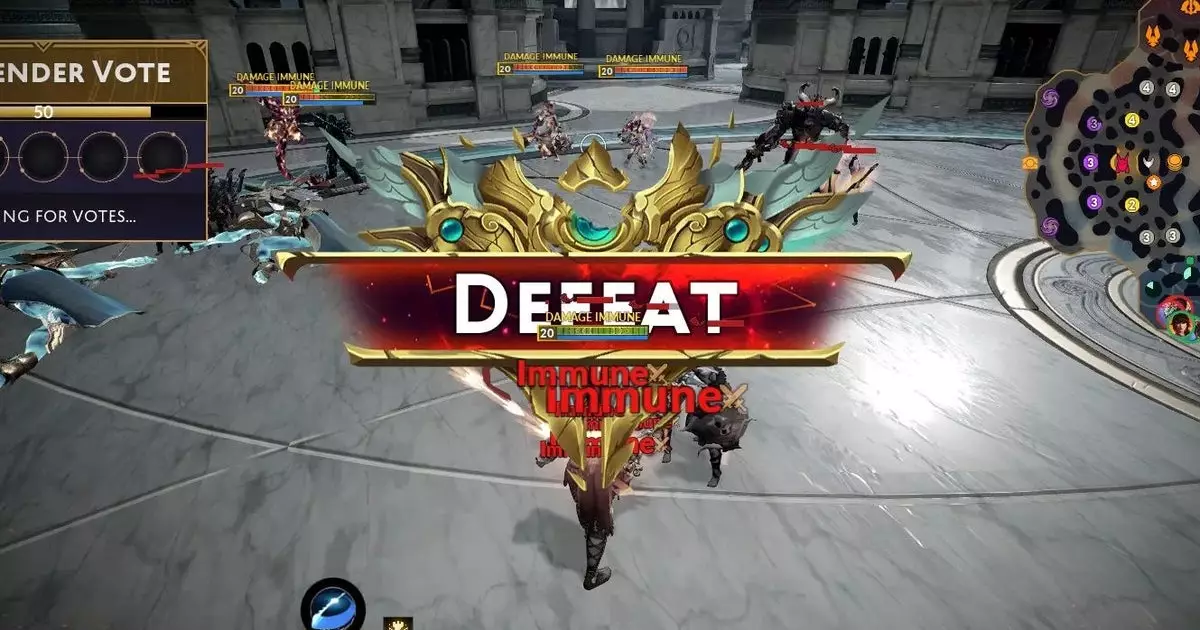In a shocking turn of events for the gaming community, Hi-Rez Studios has implemented significant layoffs just a month after the much-anticipated launch of its free-to-play beta, Smite 2. Reports suggest that between 20 to 30 employees have lost their jobs, though unofficial estimates indicate that the number could reach as high as 60. This marks yet another troubling chapter in the studio’s turbulent management history, raising questions about the company’s strategic direction and the impact on its established titles.
The repercussions of these layoffs go beyond the immediate loss of ideal personnel; they spell the end of updates and support for three of Hi-Rez’s cornerstone games: Smite, Paladins, and Rogue Company. Hi-Rez has made it clear that while these games will remain playable, the lack of new content will lead them to stagnation. Players of these titles can expect no new features, balance changes, or vital bug fixes. This move sends a concerning message about Hi-Rez’s commitment to its existing user base, which has long supported the company through its ups and downs.
Hi-Rez’s management, citing “challenging market conditions,” has framed these layoffs as a necessary step towards achieving “sustainability” for Smite 2. The assertion that these reductions will provide a “steady flow of new content” is hard to swallow when the company’s previous titles are left to collect dust. The community’s reaction could range from disappointment to outright anger, particularly among long-term fans who have poured countless hours into these games.
With this round of layoffs following closely on the heels of previous cuts earlier this year, it raises concerns about Hi-Rez’s long-term strategy. The decision to reduce staff has been justified as aligning team costs with revenue, but it suggests a problematic pattern where the company opts to cut jobs rather than seek additional revenue-generating opportunities.
But the scrutiny should not fall solely on Hi-Rez’s management; it reflects broader trends within the gaming industry as a whole. Many studios are feeling the financial heat and, in a bid to conserve resources, are making drastic employment cuts. This creates a ripple effect of anxiety among workers, indicating that job security is becoming increasingly elusive.
While some might view the focus on Smite 2 as an example of strategic prioritization, it’s essential to remember that a diversified portfolio generally helps in weathering turbulent market conditions. By sidelining long-standing titles and focusing heavily on a single project, Hi-Rez risks alienating a significant portion of its audience, many of whom may have invested years in its other games.
It is worth noting the wider context in which Hi-Rez operates. The gaming industry has struggled more than ever in recent years, marked by a series of layoffs across notable companies. The emotional toll and uncertainty faced by workers cannot be overstated; many passionate developers find themselves tossed into a precarious job market after dedicating their creativity and skills to a singular vision.
Moreover, concerns about the quality and appeal of Smite 2 have not gone unnoticed. Analysts and reviewers have already pointed out that the competitive landscape is fierce, with other titles capturing player interest. If Hi-Rez fails to keep Smite 2 engaging and innovative, the very future of the franchise could be jeopardized.
The layoffs at Hi-Rez cast a long shadow over the studio’s future. While management emphasizes their vision for Smite 2, it remains to be seen whether this focus will translate into success or merely highlight the studio’s inability to manage its resources effectively. The actions taken by Hi-Rez should serve as a cautionary tale for both players and workers within the gaming industry. As devs face ongoing uncertainty, the need for transparency, communication, and genuine commitment to all stakeholders has never been clearer.
Ultimately, the future of Hi-Rez Studios hangs in the balance, and their approach could either reinvigorate the business or further diminish their standing in the ever-evolving gaming market. For players, fans, and employees alike, this chapter in Hi-Rez’s history is one of both uncertainty and keen interest.

